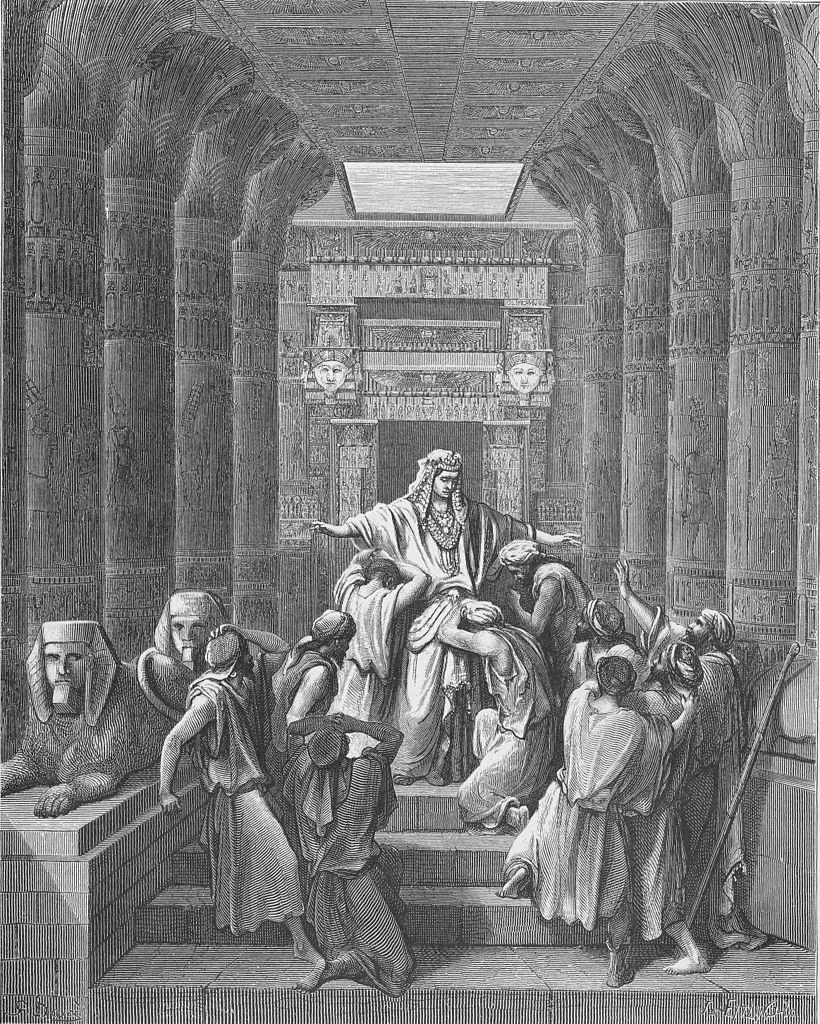Joseph Making Himself Known to his Brethren by Gustave Doré, Genesis 45:1-12, Bible.Gallery

Joseph Making Himself Known to his Brethren created and it was drawn with engraving style.
Artwork Description
This remarkable depiction, executed with the same attention to detail as the preceding illustrations, portrays the climax of the captivating narrative spanning seven chapters in the book of Genesis. It captures Joseph's revelation of his true identity to his brothers. Such moments of recognition or revelation have always been considered the most powerful elements of a story or a drama, as discussed in Aristotle's Poetics, where he cites examples from Homer and dramatic poets. However, none can surpass the one we have here. Moses, recounting simple facts, has crafted a story that rivals the finest works of dramatic art. This tale captivates the ears of young listeners and holds a magical sway over accomplished scholars. It is filled with dramatic elements, showcasing both virtuous and flawed passions, eloquence, pathos, vivid contrasts, and diverse characters. Yet, it unfolds naturally, from the initial steps in Canaan to the climactic scene in the governor's palace.
Beyond its literary and dramatic brilliance, the narrative holds profound providential aspects, both direct and indirect. It is an integral part of the process through which the chosen seed developed strength and resilience in preparation for the promised land. Even the incidental details reveal the permission of evil, its counteraction, transformation into good, the role of sorrow and trial in discipline, the interplay of divine purpose and human freedom, the importance of unwavering rectitude, the folly of sin, the intensity of temptation, and the path to overcoming it. All of these elements make the story of Joseph not only captivating but also profoundly instructive.
Before the scene depicted in the illustration, Joseph had practiced laborious and painful self-restraint. But now was the time to cast aside the mask, and the heartfelt speech of Judah moved Joseph so deeply that he could no longer contain himself. He announced with tears that he was the boy they had sold into slavery twenty-two years earlier. His brothers were incredulous, but Joseph provided undeniable proof, declaring, "I am Joseph, whom you sold into Egypt." This revelation was a long-hidden secret, known only to themselves and kept even from Benjamin. Now, the other possessor of this guilty secret stood before them—their long-lost brother himself. No wonder, in the depicted scene, every form is bowed, and every face is covered with emotion.